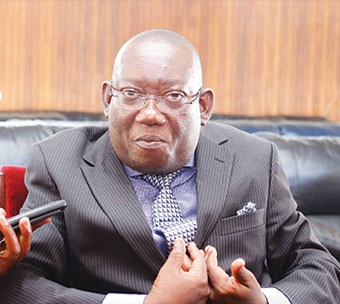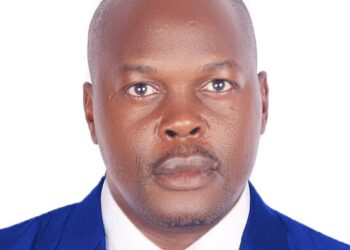News has emerged surrounding the Catholic Church’s refusal to preside over prayers for the late Hon Paul Kato Lubwama, which has caused shock and disappointment among believers and raised questions about the Church’s adherence to its own teachings. Hon Paul Kato Lubwama, was allegedly a traditional herbalist who practiced traditional culture, was denied the usual funeral prayers by the Catholic Church based on the allegation that his practices conflicted with Catholic doctrine.
This decision has sparked a debate among believers who argue that the Church should practice what it preaches and show forgiveness and compassion to all individuals, regardless of their background or beliefs.
The Catholic Church is guided by a set of beliefs and practices that have been developed over centuries. To better understand and analyze this situation, it is important to delve into the reasons and justifications behind the Catholic Church’s decision while considering the principles of doctrinal integrity, consistency with teachings, and respect for freedom of religion. While it aims to be inclusive and compassionate, there are instances where it may make decisions that align with its doctrine. Here are some reasons to consider:
1. Doctrinal Integrity: The Catholic Church’s commitment to doctrinal integrity is a fundamental aspect of its identity. Central to Catholic doctrine is the belief in the existence of one true God and the worship of Him alone. The Church teaches that all believers should adhere to these principles and avoid practices or beliefs that may deviate from them.
When an individual is known to have practiced traditional culture, it is essential to consider the potential conflicts that may arise with Catholic teachings. Traditional cultural practices often involve beliefs and rituals that are rooted in different spiritual or religious systems. These practices may include worshiping multiple deities, invoking ancestral spirits, or engaging in rituals that are not in alignment with Catholic teachings.
For the Catholic Church, refusing to preside over prayers for someone who engaged in such practices is not an act of judgment or condemnation but rather a conscientious decision to uphold its doctrinal integrity. It aims to maintain the consistency of its teachings and the faithful worship of the one true God as prescribed by Catholic doctrine.
By choosing not to preside over prayers for an individual known to have practiced traditional culture, the Church reinforces its commitment to the worship of God alone and provides a clear example of its adherence to its core beliefs. This decision is not meant to invalidate the worth or humanity of the deceased individual, but rather to maintain the religious identity and integrity of the Church itself.
It is important to note that the Church’s decision in this regard should not be seen as a rejection of the deceased person’s entire life or a denial of their worth as a human being. Rather, it is a reflection of the Church’s commitment to its own teachings and the desire to ensure that its religious practices remain consistent with those teachings.
2. Consistency with Teachings: The Catholic Church places great emphasis on the importance of living a life in accordance with its teachings. It seeks to guide its followers towards a path of holiness and moral integrity. When an individual’s life choices or practices are perceived to be in conflict with Catholic beliefs, the Church may carefully consider whether it is appropriate to perform religious rituals for that individual.
In the case of a traditional herbalist, the Church may assess whether the individual’s practices and beliefs align with Catholic teachings. Traditional herbalism often incorporates spiritual elements that may not be in harmony with Catholic doctrine. For example, certain traditional practices may involve invoking spirits or relying on supernatural powers that are inconsistent with the Catholic understanding of faith and divine providence.
By refusing to preside over prayers for a traditional herbalist, the Church is demonstrating its commitment to maintaining consistency with its teachings. It is not an act of condemnation or judgment but rather a recognition that certain practices may be incompatible with Catholic doctrine. The Church seeks to provide clarity to its followers and uphold the principles it has established throughout its long history.
It is essential to recognize that the Church’s decision is rooted in its responsibility to guide and nurture the faith of its members. By refusing to perform religious rituals in certain cases, the Church ensures that its practices and teachings remain aligned, promoting a cohesive understanding of the faith among its followers.
While it is important to approach these situations with compassion and understanding, it is also crucial to respect the Church’s right to make decisions in accordance with its own teachings and beliefs. The consistency with which the Church upholds its teachings contributes to the strength and integrity of its faith community.
3. Respect for Freedom of Religion: Respecting the freedom of religion is a fundamental aspect of a democratic and pluralistic society. The Catholic Church, as a religious institution, is entitled to exercise its freedom of religion, which includes making decisions about the rituals and services it provides. Just as individuals have the right to practice their faith in accordance with their beliefs, religious organizations also have the right to uphold their own principles and teachings.
In the situation where the Catholic Church chose not to preside over prayers for Hon Paul Kato Lubwama, who was a traditional herbalist, it can be seen as an exercise of the Church’s freedom of religion. The Church has the autonomy to determine which practices and beliefs align with its doctrines and to make decisions accordingly.
While it is important to show compassion and respect for individuals, it is equally important to recognize the autonomy of religious institutions in defining and practicing their faith. By respecting the Catholic Church’s decision in this case, we acknowledge its right to determine the scope and nature of its religious services.
It is crucial to remember that freedom of religion also encompasses the freedom to refrain from participating in certain practices that may conflict with a religious organization’s beliefs. The decision made by the Catholic Church does not negate the dignity or worth of the deceased individual, but rather reflects its commitment to its own religious convictions.
Forgiveness is indeed a core principle in Catholicism, and the Church encourages its followers to embody forgiveness and compassion in their interactions with others. While forgiveness is an essential aspect of the Church’s teachings, it is important to understand that forgiveness does not necessarily mean condoning or endorsing certain actions or beliefs.
In the context of the Catholic Church’s decision not to preside over prayers for someone who was known to be a traditional herbalist, it is possible that the Church considered the perceived conflicts between traditional practices and Catholic teachings to be significant enough to affect its involvement in the funeral rites. While forgiveness is encouraged, the Church also has the responsibility to uphold its doctrines and maintain its religious integrity.
It is worth noting that forgiveness can be extended on a personal level by individuals within the Church community, as forgiveness is ultimately a personal and spiritual journey. However, the Church as an institution has the autonomy to determine its level of involvement in certain rituals or practices based on its religious convictions.
The writer is a former catholic seminarian.
Do you have a story in your community or an opinion to share with us: Email us at editorial@watchdoguganda.com













